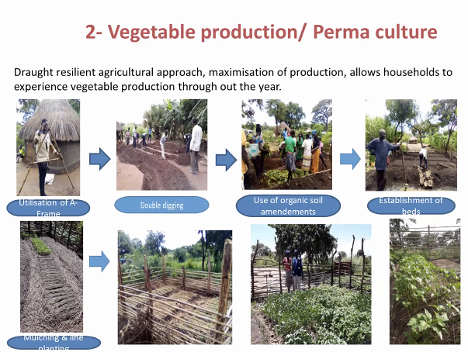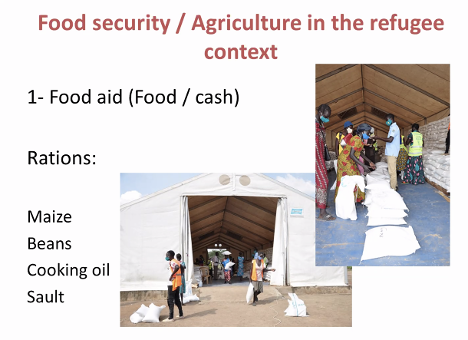 Martina Starace, Program Manager at Cesvi, an Italian non-governmental organization, based in Uganda, met with the Food Studies M.A students in their Rural Development course February 18th. Martina discussed intervention approaches to manage food insecurity in Uganda and increase the livelihood of the rural communities. Martina discussed the historic 1996 internal displacement of Ugandans due to Kony rebel groups throughout the North portion of the country. The crisis lasted for more than 10 years, causing displaced civilians to live in camps. After the crisis, civilians were able to return to their villages. However, their communities of origin were destroyed, while in the camps many problems arose, like dependency on food aid, alcoholism, and a high presence of HIV. Agricultural skills were also lost. Recovery programs implemented by Cesvi focused on infrastructure development, psychological support, and agriculture. Livelihood programs included addressing food security through restoration of agricultural activities and the use of ‘farmers field schools’ as well as up scaling farms from subsistence to commercial production. The Village Saving and Loan Association (VSLA) was also created to supports farmers with saving and loan options.
Martina Starace, Program Manager at Cesvi, an Italian non-governmental organization, based in Uganda, met with the Food Studies M.A students in their Rural Development course February 18th. Martina discussed intervention approaches to manage food insecurity in Uganda and increase the livelihood of the rural communities. Martina discussed the historic 1996 internal displacement of Ugandans due to Kony rebel groups throughout the North portion of the country. The crisis lasted for more than 10 years, causing displaced civilians to live in camps. After the crisis, civilians were able to return to their villages. However, their communities of origin were destroyed, while in the camps many problems arose, like dependency on food aid, alcoholism, and a high presence of HIV. Agricultural skills were also lost. Recovery programs implemented by Cesvi focused on infrastructure development, psychological support, and agriculture. Livelihood programs included addressing food security through restoration of agricultural activities and the use of ‘farmers field schools’ as well as up scaling farms from subsistence to commercial production. The Village Saving and Loan Association (VSLA) was also created to supports farmers with saving and loan options.

A current issue still present in Uganda today is the high number of refugees residing within the country, coming mainly from South Sudan. Uganda houses about 1,450,00 refugees. They are granted the same rights as citizens and are included in the National Development Plan towards food security: they have the right to live in settlements, the right to work and freedom of movements. The Ugandan communities provides refugees with settlement land where they can produce for subsistence as well as implement large scale agriculture, which in turn contributes to feeding the country. This promotes development, improves food security and increases the number of intervention programs.

In such a way, as well as posing many challenges, humanitarian refugees programs contributes to development in rural areas and to improve relations with host communities.
Martina Starace left the students with tips in approaching rural development and bettering the livelihoods of rural people.
- Emily A. Solomon, Graduate Student Assistant
